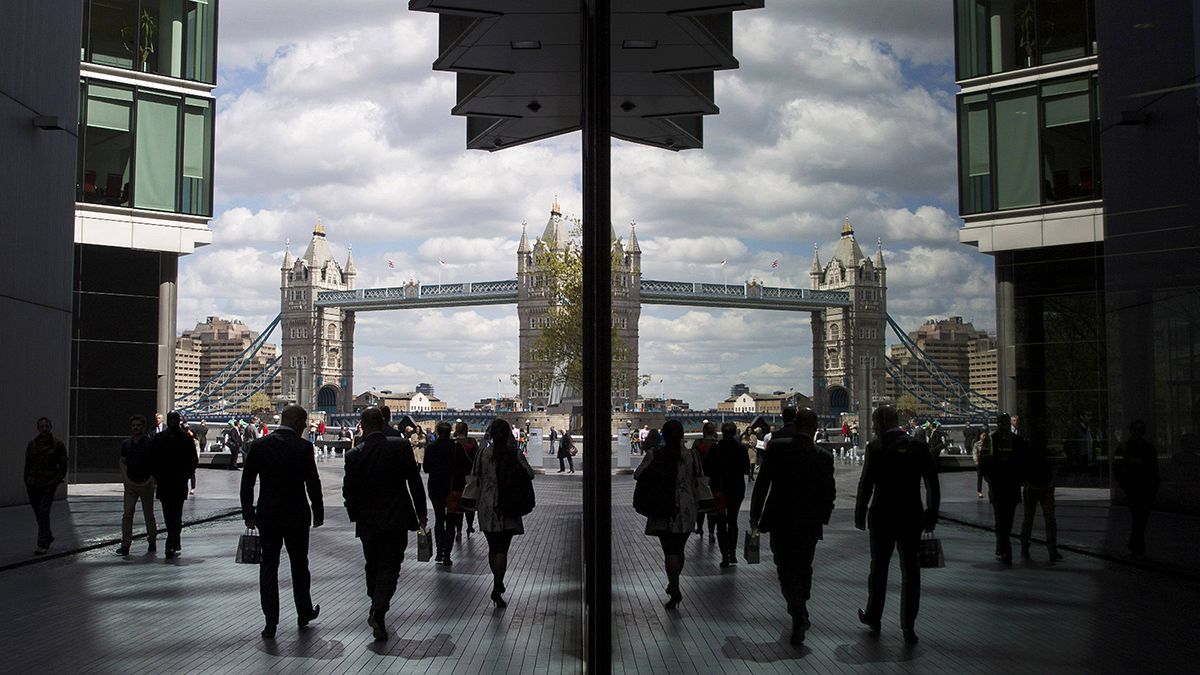Britain’s love-hate relationship with the EU has confounded successive governments for decades. Two years ago, PM David Cameron said he wanted to
Britain’s love-hate relationship with the EU has confounded successive governments for decades.
Two years ago, PM David Cameron said he wanted to settle the answer once and for all.
He said the Conservatives will offer the British public an in/out referendum in 2017.
It’s a risky strategy: Tory infighting over Europe led to his two Conservative predecessors Margaret Thatcher and John Major being ousted by the party.
And it’s a far cry from the words of one British historical giant, Winston Churchill, who once called for a United States of Europe.
Any referendum will only happen if David Cameron becomes prime minister again.
And, Cameron says, after he’s renegotiated the terms of Britain’s membership.
Eurosceptics say these caveats are mere get-out-of jail free cards so the Conservatives can wiggle out of holding the vote.
But if there is one thing that everyone agrees on, a British exit from the EU would have a huge impact on the economy.
Nigel Farage is the leader of UKIP, who is standing as an MP in this election, has long been campaigning for that vote to happen.
He wants Britain to quit the EU and forge closer trade ties with the rest of the world.
Europe is an economic basket case in decline, he says, and leaving the EU will boost British growth.
But a British Chamber of Commerce survey found that 63 percent of firms think it would be bad for Britain.
Business for New Europe is a lobby group set up to campaign for Britain’s membership of a reformed EU.
Nigel Sheinwald, a former British ambassador to the US, is now a non-executive director at the Anglo-Dutch oil giant Shell.
“Forty-five percent of our exports still go to the European Union. Of course, we want out exports to China and India to expand. But Europe, the EU is our home market
It is our geographically-close home market. And you can’t get away from that,” Sheinwald said.
“There is something in the laws of economics, which means that the countries that are close to you are going to be natural trade partners. The problem with those who want us to leave. It is that they don’t have a coherent, rational or functioning alternative.”
Brompton Bicycle employees 250 people at its factory in West London.
For this export-driven business, having one set of regulations to comply with is a real plus.
“One of the joys about doing business in Europe is that it is so transparent. It is so simple. It makes life so easy to do business in Europe because there are no barriers. We are all on a level-playing field,” said Will Butler-Adams, managing director of Brompton.
“My gut feeling is what we want to do is improve what we’ve got – a bit like what we have been doing with the bike for the last 30 years. We haven’t sort of scrapped it and come out with a “new and improved” (model). We’ve refined it. We’ve improved it…made it better. And I think that’s what we need to be doing with the EU, rather than deciding that we don’t have anything more to do with it.”
What about those from the world of finance?
Supporters of quitting the EU say the City of London would still thrive as a global financial centre because it would be freed from burdensome regulation from Brussels.
“US businesses and banks like the benefits of being an EU member state without necessarily being part of the eurozone. And I think that should the UK lose that status, they would look to move out,” said Alastair McCaig, a market analyst at IG in London.
McCaig said that two major firms, HSBC and Standard Chartered, are already making noises about quitting Britain for Asia.
But the former chief economist of Goldman Sachs says the Brexit conversation is not such a bad thing.
“I think it would be very risky myself for the UK to choose to leave the EU, but to have that debate. I am not sure if it is as crazy as a lot of financial and business people think,” said Jim O’Neill, now a visiting fellow at the Bruegel think-tank.
“Our export future doesn’t depend on Europe. It depends on the world that I tried to introduce to the world. the world of the BRICs and the big emerging economies. So the EU as important as it is, it isn’t as important as it once was.”
The Open Europe think tank says leaving the EU could cost Britain 2.2 percent of its GDP by 2030 if it fails to agree a free trade deal with the bloc.
Whatever the result of this referendum – if it ever comes about – there are some things about Europe that the Brits will always love.
